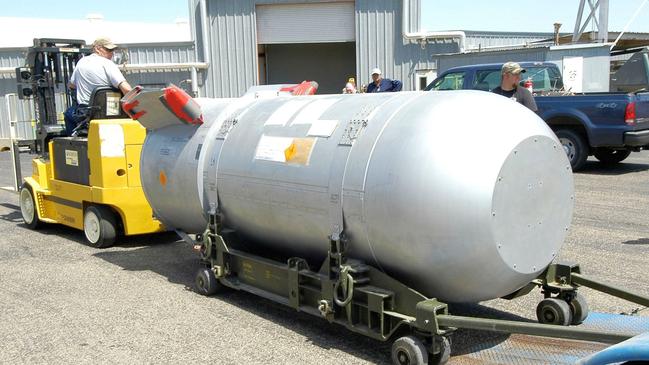Nuclear leaders united on peace
Five global nuclear powers have pledged to prevent atomic weapons spreading and to avoid nuclear conflict, in a rare joint statement.

Five global nuclear powers have pledged to prevent atomic weapons spreading and to avoid nuclear conflict, in a rare joint statement setting aside rising West-East tensions to reaffirm a goal of a nuke-free world.
“We believe strongly that the further spread of such weapons must be prevented,” said permanent UN Security Council members China, France, Russia, Britain and the US.
“A nuclear war cannot be won and must never be fought.”
The statement was issued after the latest review of the Treaty on the Non-Proliferation of Nuclear Weapons – which first came into force in 1970 – was postponed to later in the year due to Covid.
Despite the major recent tensions between China and Russia and their Western partners, the five world powers said they saw “the avoidance of war between nuclear-weapon states and the reduction of strategic risks as our foremost responsibilities”.
“We each intend to maintain and further strengthen our national measures to prevent unauthorised or unintended use of nuclear weapons,” the said.
The statement also pledged to abide by a key article in the treaty under which states committed to full future disarmament from nuclear weapons, which have only been used in conflict in the US bombings of Japan at the end of World War II.
According to the UN, 191 states have joined the treaty, which provides for a review of its operation every five years.
The statement comes as tensions between Russia and the US have reached heights rarely seen since the Cold War over a Russian troop build-up close to the Ukrainian border. That has raised fears that the Kremlin, worried by the possibility of further eastward expansion of NATO, is planning a new attack on its pro-Western neighbour. Crunch talks between Russia and the US on European security are expected in Geneva next week.
The rise of China under President Xi Jinping has also raised concerns that tensions with Washington could lead to conflict, notably over Taiwan.
Russia welcomed the declaration by the atomic powers and expressed hope it would reduce global tensions. “We hope that, in the current difficult conditions of international security, the approval of such a political statement will help reduce the level of international tensions,” the Russian foreign ministry said.
China’s Vice-Foreign Minister Ma Zhaoxu was quoted by the official Xinhua news agency as saying the pledge “will help increase mutual trust and replace competition among major powers with co-ordination and co-operation”.
The NPT recognises China, France, Russia, Britain and the US as nuclear weapons powers. India and Pakistan have also developed nuclear weapons, while Israel is widely believed to possess nuclear arms but has not acknowledged this. These three are not signatories of the NPT. North Korea, which has also developed nuclear weapons, pulled out of the NPT in 2003.
AFP



To join the conversation, please log in. Don't have an account? Register
Join the conversation, you are commenting as Logout